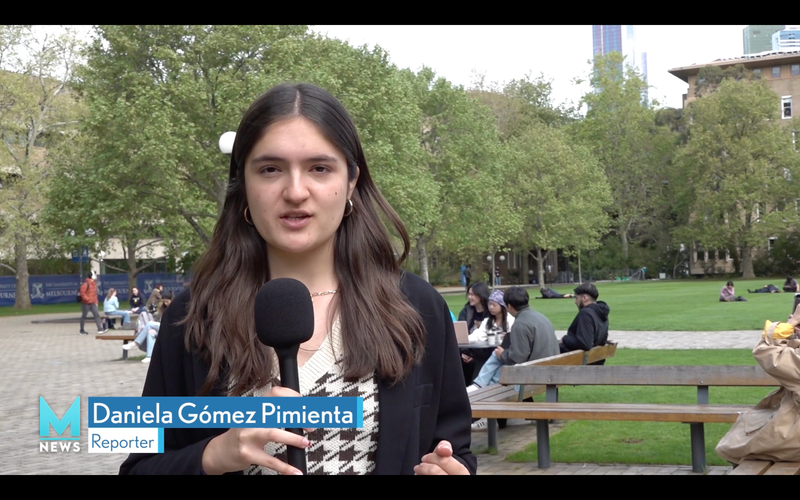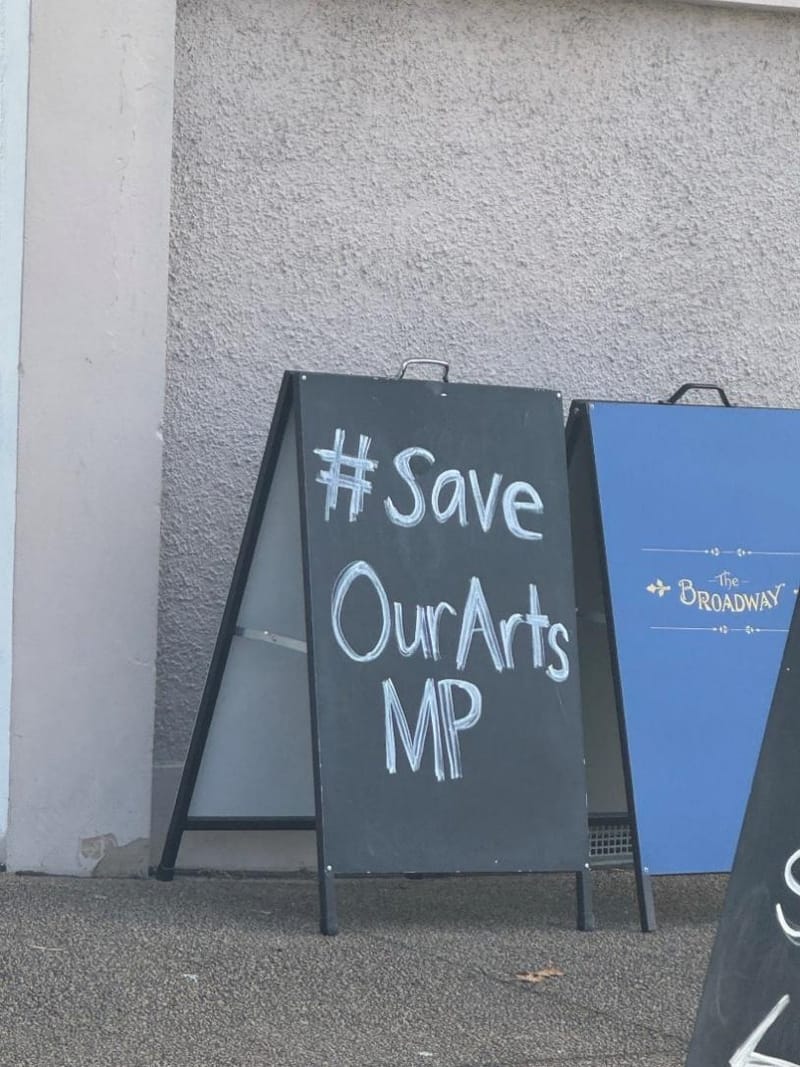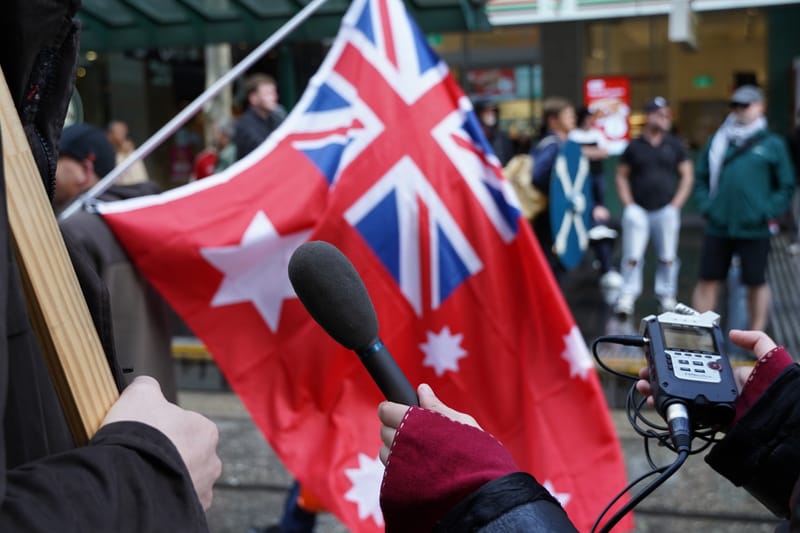'We need to have justice': Lithuania urges for Ukraine support
The joys of independence in Lithuania will be fleeting if Ukraine loses the war against Russia, the nation's ambassador says.
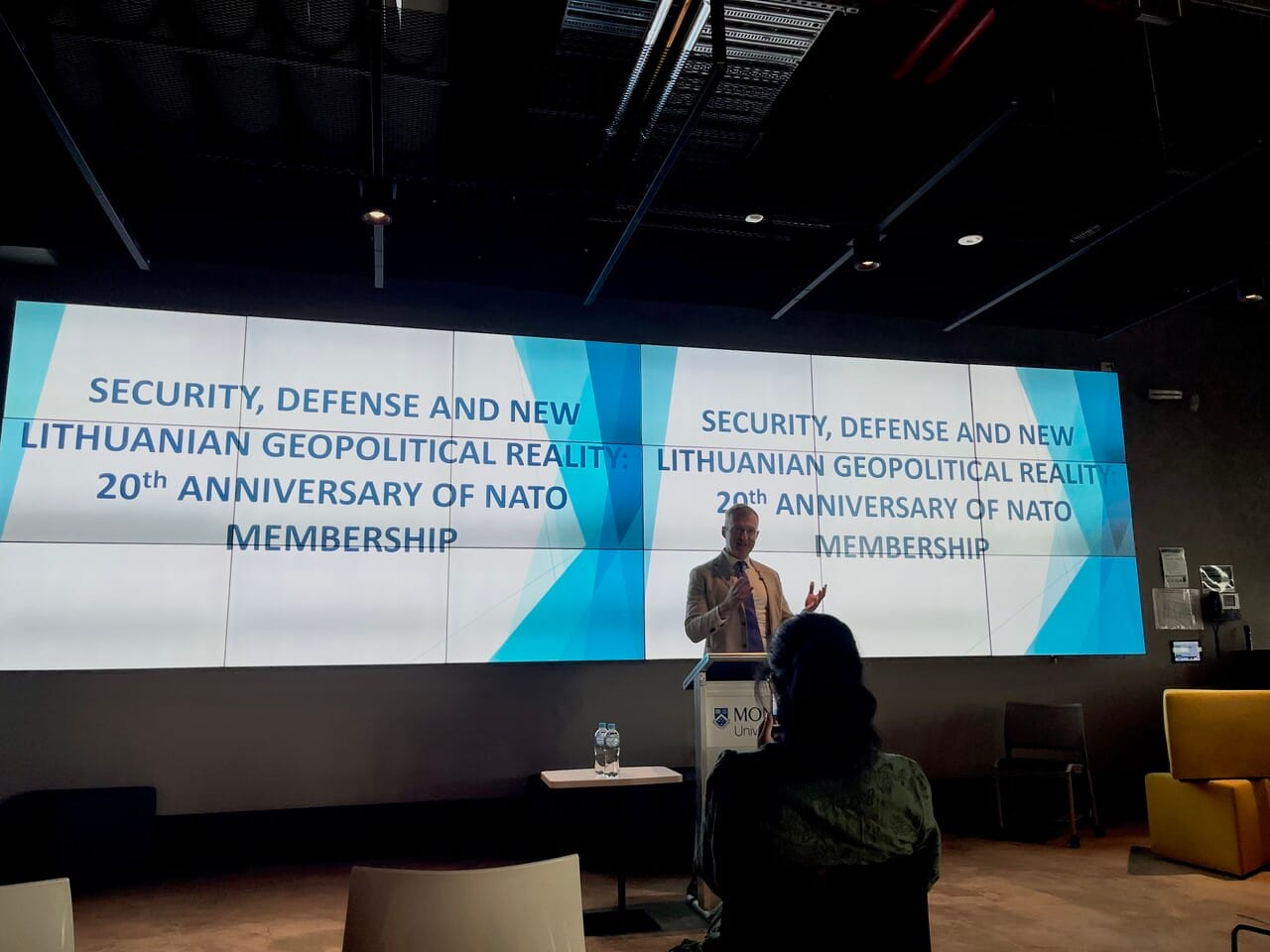
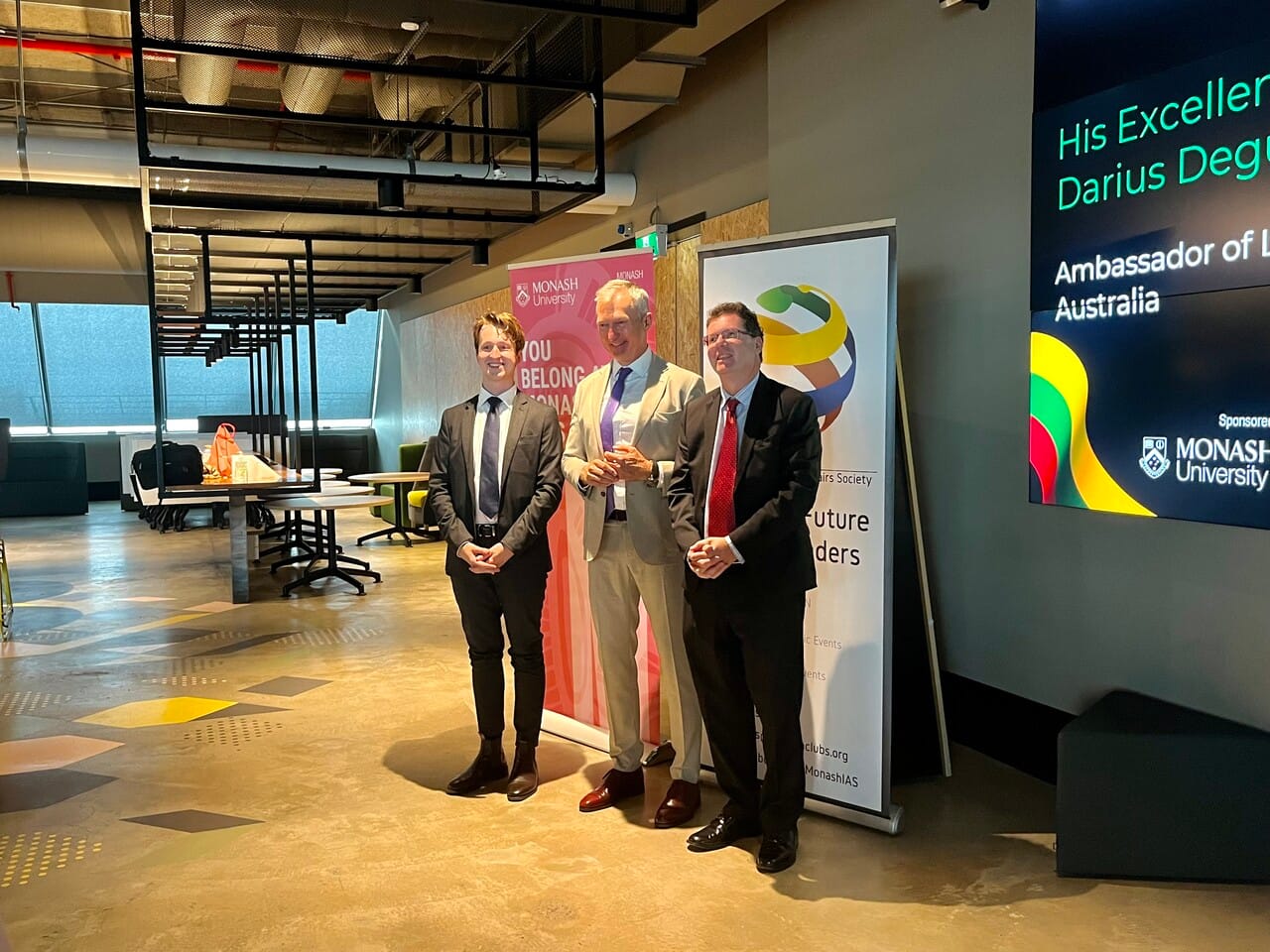
To Victorians, March 11 is Labour Day, a public holiday that commemorates the granting of an eight-hour working day.
But to people from the Republic of Lithuania, March 11 holds a different kind of significance — as echoed by His Excellency Darius Degutis, Lithuania's Ambassador to Australia, on his visit to Monash University last week.
In an event organised by Monash International Affairs Society at Clayton Campus on March 12, Mr Degutis presented a talk on security, defence and "the new Lithuanian geopolitical reality" in light of the 20th anniversary of its NATO (or North Atlantic Treaty Organisation) partnership.
Nearly 35 years ago, on March 11, 1990, the State of Lithuania re-established sovereignty and restored independence from the Soviet Union — the first of the Baltic states to do so.
Mr Degutis spoke of the joys that came with re-independence, with the Lithuanian people being free to speak their language, sing their national anthem and fly their national flag after half a century under occupation.
But these victories would become fleeting if Ukraine, Lithuania's neighbouring state, loses the war against Russia.
Since the dissolution of the Soviet Union in 1991, many former Soviet-occupied states and Warsaw Pact members have joined NATO, which has become a growing security concern for Russia.
Russia and Ukraine have been in conflict since, over the occupation of Crimea, extending NATO membership and militarisation of Eastern Europe, among other reasons. In early 2022, Russia launched a full-scale invasion of Ukraine, for which no end or resolution has been in sight.
The war leaves neighbouring states in Europe like Lithuania in fear of occupation again, Mr Degutis said.
“I would say it’s peace versus justice. Many people would say, 'let us have peaceful negotiations today. Let’s give 20 per cent of Ukrainian territory to Russia, let’s give Crimea to the Russians, and then we’ll have peace',” he said.
“No, our mentality is: we need to have justice. Because in a couple of years, they will regroup, they will re-arm and they will attack who? Us.”
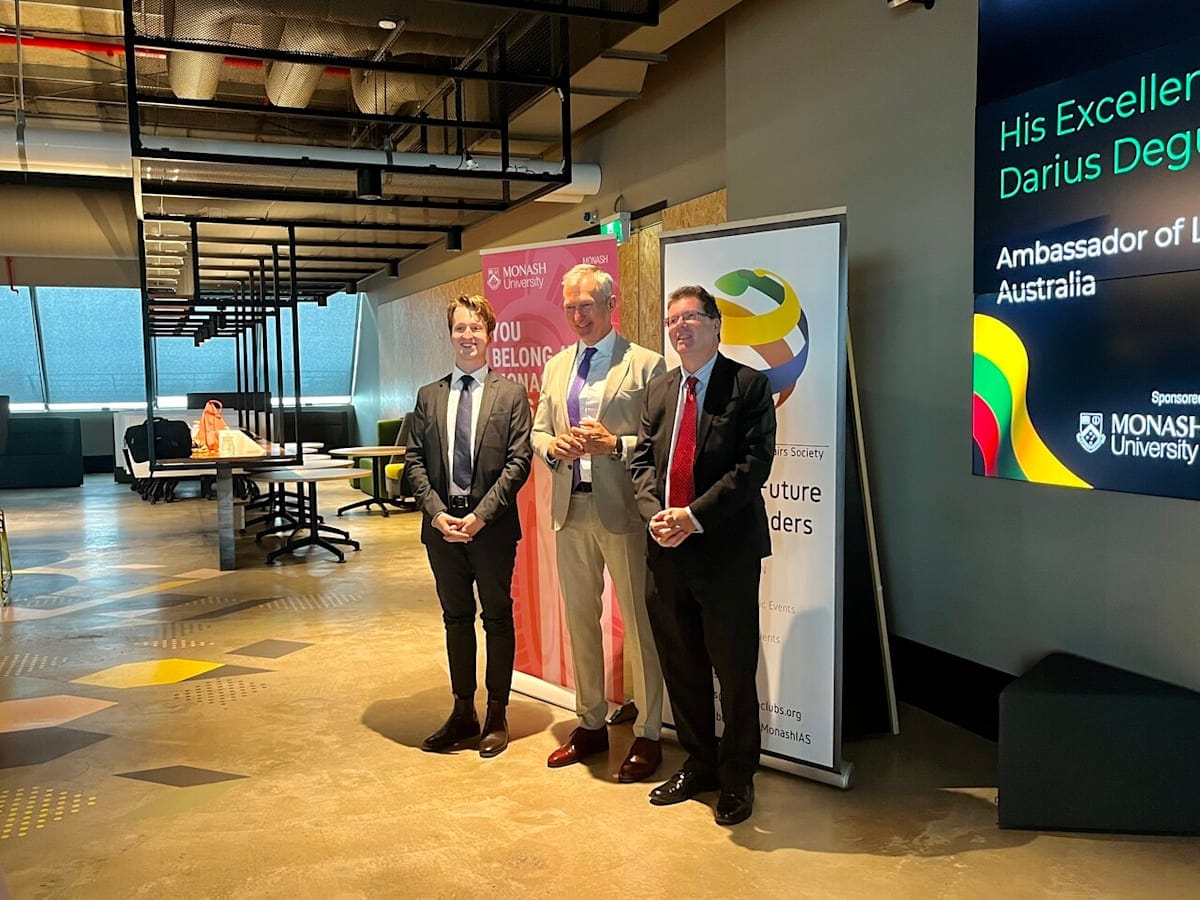
Mr Degutis urges for military assistance from Australia to support the war efforts of Ukraine, which is not a member of NATO. Australia has been an active supporter of Ukraine, contributing assistance packages such as ammunition, lethal and non-lethal weaponry, as well as humanitarian aid.
In February, the Albanese government also announced a $50 million grant to the International Fund for Ukraine to procure military capabilities.
The international response has also been in condemnation of the invasion. The United Nations has actively called for the removal of Russian troops from Ukrainian territory and the Council of Europe has excluded and suspended Russia from its ranks.
But Mr Degutis says there is a growing fatigue in support.
“The language used [by supporters] today is very Churchill, but actions are very Chamberlain,” he said.
“Ukraine is not winning, you understand. Why? Because we are not supporting them. They are fighting for us, for our freedom.”
Lithuania’s struggle to maintain sovereignty amidst the ongoing war has also made the country sympathetic to the Taiwanese cause — one it understands from years of foreign occupation.
Being the first nation to drop out of the China-CEEC cooperation between the ex-Soviet states and China, Lithuania has begun trade discussions with Taiwan to elevate its reach in the Indo-Pacific and garner support for war efforts.
Mr Degutis highlighted how economic cooperation with China is important for trade stabilisation, but redirecting trade modernisation to other parts of the Indo-Pacific is part of its long-term survival strategy — in an attempt to ‘preserve the peace and prepare for war’.
“The West says it is Europe’s war, not our problem," he said. "No, it is not. It is our war.”


